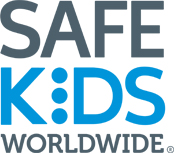Why Don’t Cows Live in Houses?

“Why don’t cows live in houses?” “Why do cows have spots?” “Do cows eat grilled cheese for lunch, too?”
It doesn’t take long being around children to realize that their curiosity (and imagination) is unparalleled. I was asked all these questions while babysitting my 3-year-old neighbor, Jonathan — yes, even the one about grilled cheese. While their curiosity and innocence often enhances their cuteness, it also inevitably leads them into vulnerable and sometimes dangerous situations.
I started interning for Safe Kids just three weeks ago after moving to Washington, D.C., from Michigan for the summer. In the short time I’ve been here I’ve learned everything from navigating the D.C. metro system, to locating the nearest cupcake bakery, to the long list of preventable injuries children face every hour of every day.
The same spark of curiosity that caused Jonathan to ask me all about cows is the same spark that leads kids to taste brightly colored detergent pods while exploring the cupboards, to play with a bucket of water when no one is watching, or play with matches. While their actions are innocent, the consequences can be severe.
I was surprised to learn that nine out of 10 poisonings occur at home; drowning is the leading cause of injury-related death among children between 1 and 4 years old; and every day, at least one child dies from a home fire.
My roommates make fun of the “crazy” statistics I tell them after work, but ultimately, they’re shocked too, and left asking: “Can we do something to prevent these injuries?”
That’s the good news. While the curiosity of children is inevitable, their injuries are not. They are preventable, and there are steps you can take to make your home a curious-friendly, yet safe environment. So the answer is yes, you can do something.
With Home Safety Month upon us, here are some tips for the parent (or babysitter) of a curious child (is there any other kind?):
Poison Prevention:
- Store all household products out of children’s sight and reach. Young kids are often eye-level with items under the kitchen and bathroom sinks. So any bleach, detergents and detergent pods, dishwashing liquid or cleaning solutions that are kept there should find a new storage location.
- Store poisonous items out of reach or use safety locks on cabinets within reach. It only takes a few minutes, and it gives you one less thing to worry about.
- Put the toll-free Poison Help Number into your home and cell phone: 1-800-222-1222. You can also put the number on your refrigerator or another place in your home where the babysitters and caregivers can see it. And remember, the poison help number is not just for emergencies, you can call with questions about how to take or give medicine.
Water Safety:
- Never leave your child unattended around water. We know it sounds strict, but there is no room for compromise on this one. Babies can drown in as little as one inch of water.
- Put the cell phone away, forget about all the other things you have to do and give young children 100 percent of your attention when they are in or around water.
- Once bath time is over, immediately drain the tub. Don’t forget to keep toilet lids closed, as well as doors to bathrooms and laundry rooms.
- Empty all tubs, buckets, containers and wading pools immediately after use. Store them upside down and out of children’s reach.
Fire Safety:
- Working smoke alarms reduce the chances of dying in a fire by nearly 50 percent. They are a critical first step for staying safe, but in order to be effective they have to be working properly. For the best protection, install smoke alarms on every level of your home and in every sleeping area.
- Create and practice a home fire escape plan with two ways out of your house in case of a fire. Get a stopwatch and time how fast your family can escape. The kids will love it. Here’s a handy worksheet to get you started.
Teach kids never to play with matches and lighters. Make a habit of placing these items up and away from young children.
Now if I could only be better prepared for some of the questions kids ask, like: “When will I be old enough to live on the moon?”
